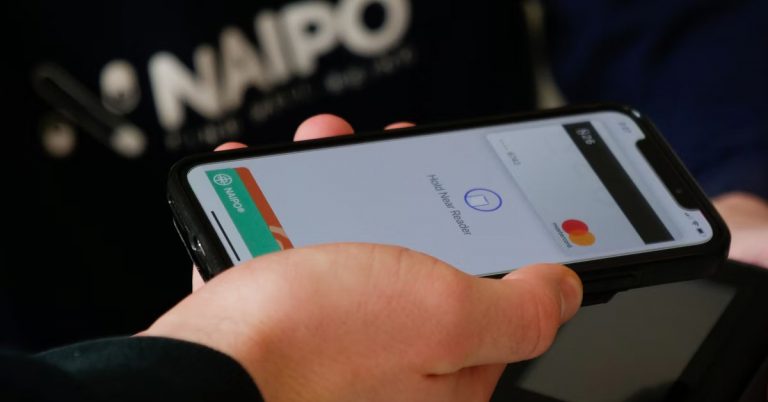Are Paid or Fake Testimonials Illegal? (And How to Get the Right Ones?)

Anyone who’s ever started a business, or was in other ways part of a business, knows just how difficult it is to launch a new product. You can have exactly what the public needs, a product that everyone would want to buy, but you’re simply not getting enough traction – which leads to low sales. Entrepreneurs love solving this problem with testimonials – written or spoken statements extolling the product’s virtues. Testimonial usually means that the statement was made by an ordinary citizen, while endorsement applies to a statement made by a celebrity.
Now, the good news is that you can clearly let anyone use your product and ask them to say a few words about how good it is. The bad news? If they don’t like your product, you won’t be getting the promotion you want. Naturally, businessmen wonder if they can fake a testimonial? Questioning the legality of this move is completely normal and is the next logical step. So, are paid or fake testimonials illegal?
Fake testimonials are illegal. The Federal Trade Commission has the power to stop and penalize any party “using unfair and deceptive acts or practices in or affecting commerce.” Breaking the official rules set by the FTC is a crime, and the FTC forbids the use of fake testimonials.
However, that answer only raises more questions, as it still doesn’t offer a solution to the problem we’re seeing in advertising. We also need to address that there are exceptions to paid testimonials – not all of them are illegal, and it’d be absolutely pointless to leave out testimonials on third-party websites.
In this article, we’ll be delving into the legality of the world of advertising. We’ll be finding out the wild specificities surrounding the illegality of paid and fake testimonials, using testimonials without permission, and learning how to get real – legal testimonials. Let’s get started.
Are Paid Testimonials Illegal?
As I’ve already said; yes – paid testimonials are illegal, but there are some exceptions to it. A lot of the laws that make fake testimonials fake are the same ones (or are at least based on the same principles) that make paid testimonials illegal. However, there’s one major difference.
Fake testimonials are fake because they’re made up, not all paid testimonials have to be made up. You can pay someone for telling the truth.
Now, you don’t want to lie to your customers by creating fake testimonials, but finding former customers who would be willing to take time out of their day with the sole purpose to film a testimonial to promote your company for free is bordering with impossibility. The best way to persuade your former customers (or current ones for that matter) to help you out is by paying them.
The FTC’s “Guides Concerning the Use of Testimonials and Endorsements in Advertising” address how 15 U.S.C. 45 applies to testimonials, including paid testimonials. These guides and others lay out legal (and illegal) practices for testimonials or reviews on sites like Yelp, TripAdvisor, Google Business Reviews and others, as well as any testimonials you use in advertisements, on your website or elsewhere.
The specific guide I’ve just mentioned and the even more specific code is something we’ll be talking about a lot here, so I’d recommend memorizing it.
According to the guide, there are several principles testimonials have to adhere to in order to be considered legal:
– the testimonial has to be made by a real customer or user of the product or service
– the testimonial has to be based on a real user’s experience
– the testimonial has to be an accurate description of expected or normal results
– the testimonial can not be influenced by money, gifts, or publicity unless it is clearly disclosed
– the testimonial can not be influenced by a familiar or business relationship (such as employer-employee)
– the testimonial can not be edited or altered so to change the message
All of that defines legally paid testimonials like the ones where the company or person giving the testimonial clearly states that they are being paid and the statement is still true and accurate.
To be transparent, you need to disclose that while these are actual customers, they have been compensated for their time.
This has recently caused a big issue for Yelp. The company has recently started to come down on companies buying or trying to buy customer reviews. Officials from Yelp have stated that buying reviews skews results and leads the customers on – something Yelp is not a fan of.
There are numerous examples, like offers of “$15 off tennis lessons for a five-star review” or “Amazon gift cards for a five-star review” – which obviously buy clients’ honesty. Clients may feel inclined to leave an honest review with three or four stars, but the paid incentive makes the customer lie on the review at the prospect of monetary compensation.
Yelp has stated that even customers who have had terrible experiences are going to leave good reviews for monetary compensation.
However, this is completely understandable, since just one star on Yelp can make a 9% difference in revenue. Companies found doing this are usually banned from the site, and often fined by the local government.
When it comes to third-party websites, paid testimonials are illegal with no exceptions. While the FTC may stand by exceptions when it comes to paid testimonials (even though they are found to be very strict) – a lot of sites, like the aforementioned Yelp or Google and Amazon, do not find this acceptable and completely ban companies who pay for testimonials.
Google clearly states in their review guidelines: “Don’t offer or accept money in exchange for reviews.” – Amazon’s policies are the same.
Yelp is, somewhat surprisingly, taking the harshest stance out of all the mentioned companies. They forbid paid reviews, yes, but they strictly forbid asking your customers for reviews, as well. “Don’t ask for reviews and don’t offer to pay for them either: Please don’t ask your customers to review your business on Yelp. … You should also never offer compensation (discounts and freebies count too) in exchange for reviews.”
These companies do this because accepting paid testimonials would lead to unreliable reviews, which would definitely tarnish the reputation. I know that I’ve only given three examples, but these three are some of the largest corporations in the world of the internet. It’s likely that smaller companies won’t be fighting this trend.
Here are some general rules you should follow if you’re planning on using testimonials:
– disclose any relationship you have with the person who is endorsing you (e.g. they are your employee, or you have paid them to endorse you)
– ensure that any endorsements are honest, and reflect the true experience of the endorser
– not use misleading or deceptive endorsements
– not twist the words of any endorsements to distort the endorser’s message
– only use endorsements from bona fide users of your product or service
– ensure that you get adequate substantiation, (including in some cases reliable scientific evidence) to support any claims made through endorsements
– ensure that the endorsement is representative of a typical user experience
– ensure that any experts endorsing your products have the necessary qualifications to back up their expertise
To ensure that this is done properly, including the #sponsored tag might be a smart move, along with a disclaimer stating that the results are not typical.
Are Fake Testimonials Illegal?
Yes, fake testimonials are illegal – with no exceptions. Under 15 U.S. Code § 45, the Federal Trade Commission (FTC) has the power to stop and penalize parties “using unfair or deceptive acts or practices in or affecting commerce.” This makes it a crime to break official rules imposed by the FTC. And the FTC forbids the use of fake testimonials.
There are many documents carefully explaining everything said in the previous paragraph, but this quote from Truth in Advertising explains it best “When consumers see or hear an advertisement, whether it’s on the Internet, radio or television, or anywhere else, federal law says that ad must be truthful, not misleading.”
The FTC has put in a lot of effort into making guides that are supposed to ensure that this sort of thing happens as rarely as possible, but fake testimonials are illegal. They are considered false and/or misleading advertising, and here’s why. Firstly, they’re not based on actual customer experience, which is specifically a request of a testimonial. Following that, it misleads the customer.
Claiming that a happy customer exists (when they clearly don’t) is misleading itself, and whatever the fake testimonial claims are misleading, as well.
Thirdly, fake testimonials encourage customers to spend money on a product or service they otherwise might not spend money on – that’s considered a financial fraud, something that FTC takes very seriously.
This includes hiring actors but also includes having employees pose as customers.
According to the FTC:
“When consumers see or hear an advertisement, whether it’s on the Internet, radio or television, or anywhere else, federal law says that ad must be truthful, not misleading.”
However, if you have an employee who is also a customer, they can legally give a testimonial about the products or services they’ve received. Although it is recommended that your testimonials should be provided by actual customers and only your customers.
When it comes to third-party websites, fake testimonials are completely illegal on those. I’ve already offered an in-depth explanation as to why it is absolutely crucial for a company to be positively rated on sites like Yelp, Google, and Amazon. Creating fake testimonials for these sites is not only completely illegal, according to the FTC, it’s also completely forbidden by these websites.
Now, you might be asking yourself just how illegal are paid and fake testimonials. Well, thousands and/or millions of dollars in penalties and civil suits – that kind of illegal.
Each FTC violation is subject to a $10,000 penalty under 15 U.S.C. 45. Now, if that wasn’t scary enough – a fine of $41,484 can be charged for each day a deceptive ad runs. However, many big corporations that can actually afford this tend to ignore these warnings, so the FTC has filed civil actions against giant corporations – with literally millions of dollars in fines.
The size of the civil case depends mostly on how widespread, deliberately misleading, and/or damaging the deceptive ad in question is. The FTC can also order businesses to admit to and correct deception, or return money to consumers they deceived.
For example, in 2019, the FTC fined a business 12.8 million for buying fake Amazon reviews.
Even if it weren’t against the law, fake testimonials are a big problem for large corporations. Big businesses like Yelp, Google, and Amazon have all changed their terms of service, removed or flagged reviewers and businesses who violated the agreements. In 2015, Amazon sued over 1000 offending businesses, reviewers, and sites.
If you use paid and fake testimonials, you will most likely get caught. It’s borderline impossible to get away with fake advertising, as many of these cases are first brought to the FTC’s attention by suspicious or angry customers, competitors, third-party websites, consumer protection groups, or local governments. Many third-party sites create algorithms that run automated screening processes. Customers have also taken notice of paid and fake reviews. Several plugins and apps now exist that will point out fake reviews as customers shop online.
Can You Use Testimonials Without Permission?
No, it’s illegal to use testimonials without permission. Anyone’s official statement is theirs to use, and you do not have the right to do the same unless they have actually signed off on it.
If this testimonial is used to promote a product, then it must have the permission from the person making the statements. In writing. This is called a ‘release’ and allows you to print it.
If the testimonial itself was published by the author or speaker, then it constitutes a review and a copyrighted work. To use the whole work, you need permission to copy it.
“Be sure to keep a paper trail of any endorsement agreements or arrangements that you set up. If a customer agrees to endorse your product, get their agreement in writing (an email is sufficient).
This protects you in case a customer later wants to retract their testimonial. If they’ve agreed in writing that you can use their testimonial for a set period of time, you won’t have to remove their testimonial until the contract ends.
You can include clauses in your Terms of Service or Privacy Policy that any user reviews submitted to your website can be used for marketing purposes“
This was taken out from a post by Leah Hamilton (from Neil Patel’s blog), who should definitely be considered a figure in this field.
How to Get the Right Testimonials?
So, you’ve decided not to fake your testimonials and go for the real deal, so now you’re wondering how exactly you should do that?
The very first thing you want to check is just how useful testimonials are. Reviews are ridiculously persuasive – over 70% of customers take a look at the reviews before they make a purchase. In a survey done by Zendesk, it was found that 90% of participants were influenced into buying a product by positive reviews.
This goes to prove that positive reviews will, without a doubt, have a very positive effect on your business. Testimonials build trust between you, as a brand or business, and your customers. They show that your business is good at what it does and that your product does what you say it will. Testimonials also go a long way toward showing a history of good service, which is extremely important to most customers. They want to know that you’re not just another business that will cease to exist in a year or two.
Testimonials should always aim at honesty, not sales – telemarketing and similar kinds of marketing are considered trash by customers. They’re invasive, aggressive, and very distasteful. You should always aim to keep your testimonials authentic, unbiased, and genuine.
“Sincere and high-quality testimonials not only help to overcome the doubts of skeptics about your product, they even go a long way toward changing the minds of prospects who aren’t sure about the legitimacy of your product.” another quote by Leah Hamilton. This is actually a consequence of a phenomenon called ‘social influence’ – the power of the crowd. Customers trust other customers more than the company behind the sales.
This is because customers are painfully aware that the company’s only goal is to make money, while a customer will rarely lie to another customer (without good reason, that is).
Here are some rules recommended by successful businesses, you should implement these in your testimonials if you want to keep them legit.
– disclose your relationship with your endorser – disclose any special relationships you may have with your endorser. Your employee should always identify as your employee, and paid endorsers should always be identified as paid endorsers. Amazon requires that all Amazon Associates (business owners and bloggers who earn referral fees by placing links to products for sale on Amazon.com on their own websites) must disclose that they are an Amazon affiliate and that they are paid when users purchase a product from their promotion.
All disclaimers and disclosures should be in clear, simple language so that viewers can’t miss or misunderstand your message. For example, use the #ad tag or a short statement like “This product was sent to us for review purposes” or “This review was funded by [Company].”
– ensure that testimonials are accurate – endorsements must reflect the honest opinions, findings, beliefs, or experiences of the endorser. Here’s a very clear explanation offered by the FTC
“An advertisement for a weight-loss product features a formerly obese woman. She says in the ad, ‘Every day, I drank 2 WeightAway shakes, ate only raw vegetables, and exercised vigorously for six hours at the gym. By the end of six months, I had gone from 250 pounds to 140 pounds.’ … Because the endorser clearly describes the limited and truly exceptional circumstances under which she achieved her results, the ad is not likely to convey that consumers who weigh substantially less or use WeightAway under less extreme circumstances will lose 110 pounds in six months.
“If the advertisement simply said that the endorser lost 110 pounds in six months using WeightAway together with diet and exercise, however, this description would not adequately alert consumers to the truly remarkable circumstances leading to her weight loss.”
– get written permission from your customers – I know that we’ve already discussed this in the former section, but I’ll repeat it just in case. You are not allowed to use a statement made by a customer without them signing off on it.
– don’t lift testimonials from review websites – you might find a good testimonial for your product on another site. If you do, you shouldn’t just copy and paste it onto your own site. Most review sites have a clause in their Terms of Service stating that user-generated content (such as reviews or testimonials) is owned by the user and licensed to the website. If you copy and paste the testimonial, you are infringing on the intellectual property rights of the person who wrote the review – and your customers definitely won’t appreciate that.
If you want to get honest testimonials, there are proper ways to do it. Firstly – quality assurance. If your product/service is really that good, the customer will want to leave a review without any persuasion necessary. You should always try to deliver the best service available, and this will be enough for customers to express their gratitude.
Secondly, cultivating a relationship based on quality and trust can be greatly useful. Find out what your customers want and need, and then give it to them. Whatever it may be; a company with good ethics, support team, design, ambiance – ensure that you can provide that. The customers that repeatedly buy, visit, or work with you for a long time are the customers that support you and will give testimonials.
Make reviewing easy. This is such an overlooked part of creating testimonials, but it’s crucial. A lot of customers aren’t creative when it comes to reviewing and won’t try hard to do it, after all – it isn’t their job to review your service/product, it’s all based on professional courtesy. So, as they’re stepping out of their own way to help you out, the least you can do is prepare a few questions for the review, making it easy for them to review your product.
Make sure to time your approach appropriately. Ask if they have a moment for a review, that’s much better than jumping their bones whenever you feel like. Read the room, assess the situation, and then act upon that.
Be honest with your customers – tell them exactly why you need their testimonial, how much it would mean for you and your company, and make sure to acknowledge just how important your relationship is to you. It may surprise you, but honesty between a company and a customer goes a long way – that’s because customers tend to see companies as cold, unapproachable, and inhuman. Being honest will prompt a similar response from your customers.
Create a plan for gathering testimonials. These things don’t just happen, and serious companies and businesses have teams dedicated to collecting testimonials and reviews. You can create automated email campaigns, in-person scripts, apps, etc.
When gathering testimonials, you’ll want to approach the customer as soon as they’ve bought the product (or used it), make sure to follow the customer’s journey to the product, and based on their feedback improve it, and then ask for another review.
You can also search for reviews of your product on social media, as a lot of people post about the things they buy and use without any intention of advertising the same. Also make sure to keep track of comments on your blog and the emails you receive, as many reviews can be hidden away in that area. You can also offer free products in exchange for testimonials and you can always create surveys.
Whenever you decide to do anything from the list above, make sure to ask your customers for their approval.






